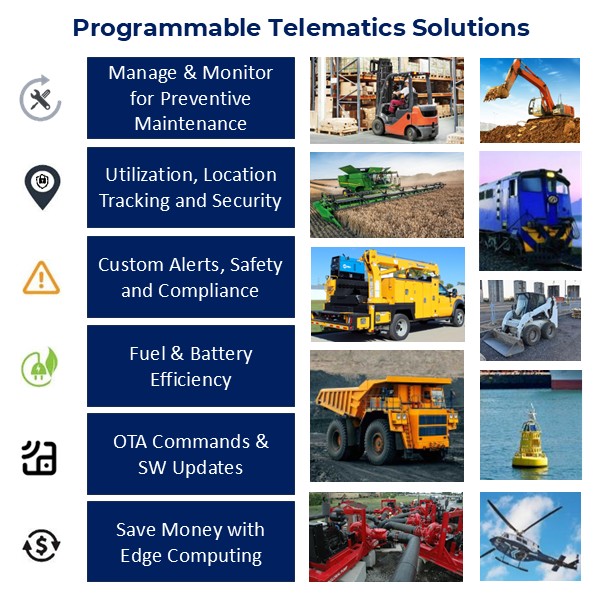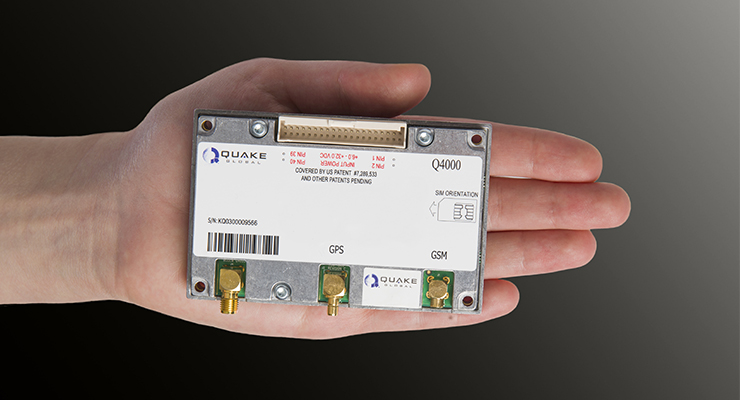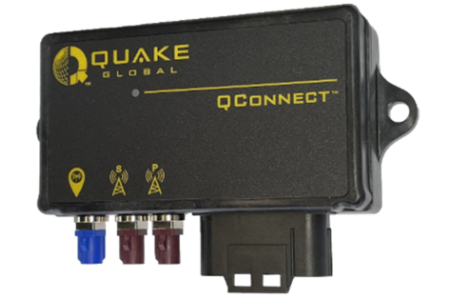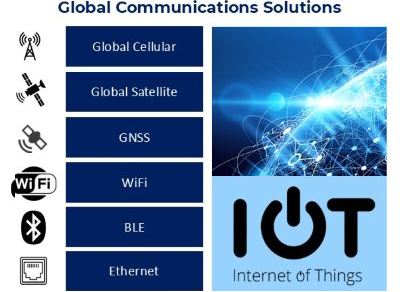
Managing fleets of high-value assets, such as excavators and dozers, becomes more complex as wireless technology advances. Cellular, Wi-Fi and global navigation satellite systems (GNSS) allow constant tracking but generate vast amounts of data. Data overload can overwhelm fleet managers and increase cellular expenses.

A single work truck might produce hundreds of megabytes of data weekly, such as:
- Engine diagnostics
- Fuel usage
- Driver behavior
Multiplied across a fleet, the data volume quickly reaches hundreds of gigabytes.
In remote areas, like open-pit mines or rural highways, connectivity is often slow or unreliable. This makes it more challenging to:
- Transmit alerts
- Perform remote diagnostics
- Push software updates
These limitations affect equipment uptime and pose a risk to personnel. Delayed alerts or diagnostics can prevent timely interventions. Missed updates may compromise system integrity in hazardous environments.
Cellular Connected Edge Intelligence
Quake Global, a leader in industrial telematics, developed a suite of edge computing solutions to enhance safety for personnel and safeguard operations. Equipped with cellular connectivity, its solutions enable real-time data transmission in complex environments.
These innovations permit organizations to protect their investments and strengthen operational safety through:

- Tracking
- Monitoring
- Controlling
Quake Global’s technology enables users to manage worldwide assets from one device.
By processing data locally, the device reduces bandwidth costs and prevents information overload. Fleet managers and operations teams receive only actionable insights, such as fault codes or geofence breaches.
The Q4000 is a rugged programmable gateway modem. It utilizes industry-standard protocols, such as CAN bus J1939, to communicate with vehicle electronic control units (ECUs). Fleet owners and equipment OEMs can create custom rules to determine which data is uploaded. For example, a dozer OEM could configure the Q4000 to transmit only warranty-related data.
The Q4000 features integrated data compression to minimize upload size. This helps reduce bandwidth demands and operational costs. It supports LTE-M and narrowband IoT (NB-IoT) across 18 bands. The gateway’s 3G and 2G fallback maintains connectivity in rural and remote areas.
Quake Global’s QConnect, a flexible programmable gateway modem, supports LTE Cat 1 with 3G and 2G fallback. Additional connectivity options include Bluetooth® wireless technology and Wi-Fi.

Both devices support GNSS constellations, including:
- GPS
- GLONASS
- BeiDou
- Galileo
- QZSS
This ensures reliable global coverage by selecting the best available satellite constellation for each location. Smart SIM technology enables automatic network selection, delivering consistent connectivity worldwide.
The Telit Cinterion Advantage

Quake Global has partnered with Telit Cinterion for over 20 years. This collaboration ensures that advanced cellular modules are integrated into Quake Global’s telematics devices. Customers benefit from the latest advancements in connectivity and device performance.
Telit Cinterion modules featuring Qualcomm’s LTE chipset provide seamless global connectivity. Quake Global customers gain reliable performance and efficient power consumption.
This partnership reflects Quake Global’s commitment to innovation. It also highlights the company’s active role in advancing connected technologies.
“Quake and Telit Cinterion have a long-standing partnership that continues to drive innovation and technological progress. As we enter a new era with 5G and NTN connectivity, it is critical to collaborate with trusted leaders and module providers like Telit Cinterion. This partnership enables us to deliver highly innovative, best-in-class global IoT solutions to our customers worldwide.“
— Polina Braunstein, President and CEO, Quake Global INc.


